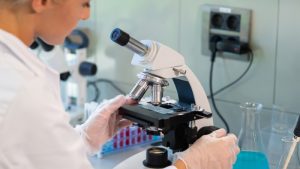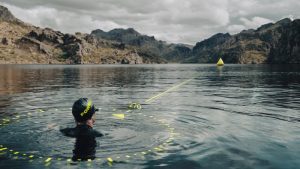DeepMind and BioNTech build AI lab assistants for scientific research
Stay informed with free updates
Simply sign up to the Artificial intelligence myFT Digest — delivered directly to your inbox.
Google DeepMind and BioNTech are building AI lab assistants to help researchers plan scientific experiments and better predict their outcomes as companies race to find specialised applications for energy and data-intensive artificial intelligence models.
Sir Demis Hassabis, chief of Google’s AI arm, is leading the company’s efforts to develop a specialised AI model to act as a research assistant, helping scientists to collaborate across disciplines and make unexpected connections more easily.
At a recent Nobel Foundation event, he said biology was “seeing a revolution” as a result of AI software.
“We’re working on a science large language model that could be like a research assistant and maybe help you predict . . . the outcome of an experiment,” Hassabis said.
Over the coming years, he said the tools that DeepMind was building could suggest and design experiments based on a given hypothesis and give scientists a probabilistic view on a proposed experiment’s potential success or failure.
Meanwhile, German drugmaker BioNTech and its London-based AI subsidiary InstaDeep said on Tuesday they had designed a specialised AI assistant known as Laila with a “detailed knowledge of biology” built on top of Meta’s open-source Llama 3.1 model.
In a live demonstration, research scientist Arnu Pretorius showed how the AI agent could automate routine scientific tasks in experimental biology, such as analysis and segmentation of DNA sequences, and the visualisation of experimental results.
Scientists at BioNTech’s laboratory in Mainz also demonstrated how Laila could connect to lab devices and monitor ongoing experiments or tasks being performed by robots, with the assistant detecting a mechanical failure from a BioNTech machine during a live demonstration.
“We do not believe that the future is full AI automation any time soon. We see AI agents like Layla as a productivity accelerator that’s going to allow the scientists, the technicians, to spend their limited time on what really matters,” Karim Beguir, chief executive of InstaDeep told the Financial Times.
InstaDeep also presented AI models that could help BioNTech identify or discover new targets to tackle cancers, at the first presentation of their technology since the Covid-19 vaccine maker acquired InstaDeep in 2023 for up to £500mn.
While recognising that rivals such as DeepMind could also build AI assistants, Beguir said having InstaDeep’s technology “under the same roof” as BioNTech’s expertise in biology was an “accelerant” for implementing AI and “unique” in the pharmaceutical sector.
The new scientific assistants come as tech companies spend billions of dollars on AI models and products, believing the technology can change industries from healthcare to energy and education.
The wave of AI innovation in science has so far focused on predicting new and useful drug candidates. However, the bottleneck in bringing new treatments to market remains performing experiments in the real world, which is the gold standard in scientific research.
The goal of an AI research assistant would be to simplify this process by more effectively planning experiments, for example by selecting the most promising from among a set of possible experiments.
Companies such as Google and Microsoft are adapting large language models — software that can generate text, code, images and even DNA or molecular sequences, based on large training data sets — to help facilitate scientific breakthroughs.
In 2022, DeepMind designed an AI system known as AlphaFold that could predict the shape of almost every known protein, solving a 50-year-old scientific challenge and potentially reducing the time required to make biological discoveries significantly.
Nobel Prize-winning geneticist Paul Nurse said at the Nobel event in March that members of his laboratory “use AlphaFold all the time” in biochemical experiments, adding that the AI model’s output “isn’t always right, but it is sufficiently right to be a fantastic tool”.
Hassabis has since spun off this work into an AI drugs offshoot known as Isomorphic Labs, a group where Nurse sits on the advisory board, which has agreed partnerships worth up to $3bn with Eli Lilly and Novartis.
Microsoft’s AI4Science Research arm has also been harnessing LLMs to speed up scientific discovery. Its director Chris Bishop said at a research forum this year that one of the remarkable properties of LLMs was that “they can function as effective reasoning engines”, which is particularly useful in science.
Bishop said the team had worked with the Global Health Drug Discovery Institute to use LLMs to discover new molecules to treat tuberculosis more effectively.
#DeepMind #BioNTech #build #lab #assistants #scientific #research







